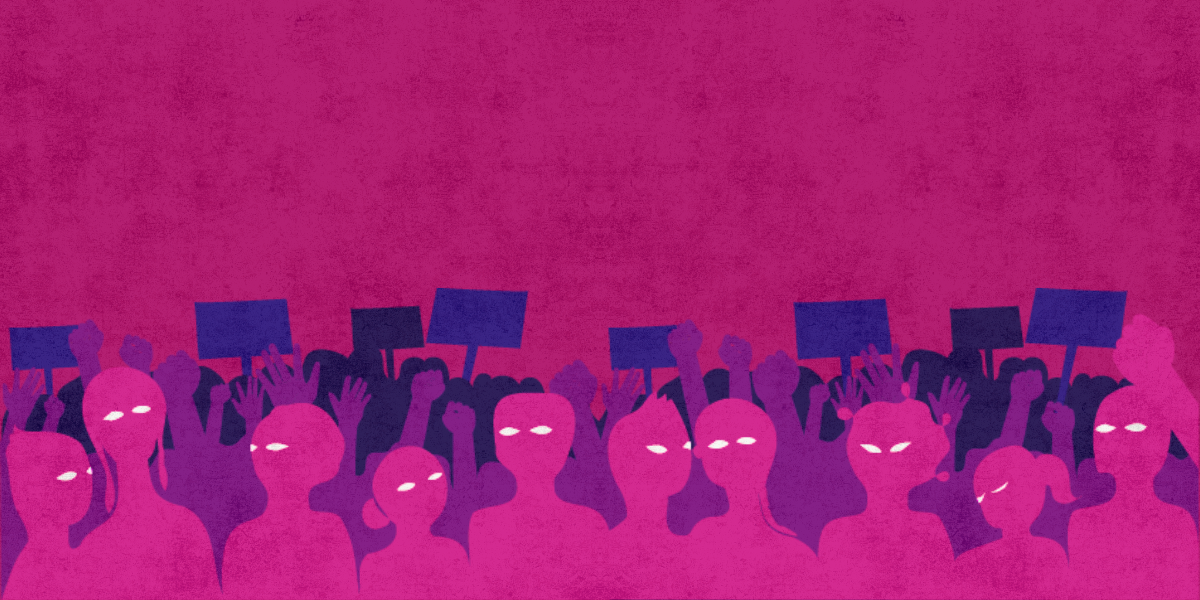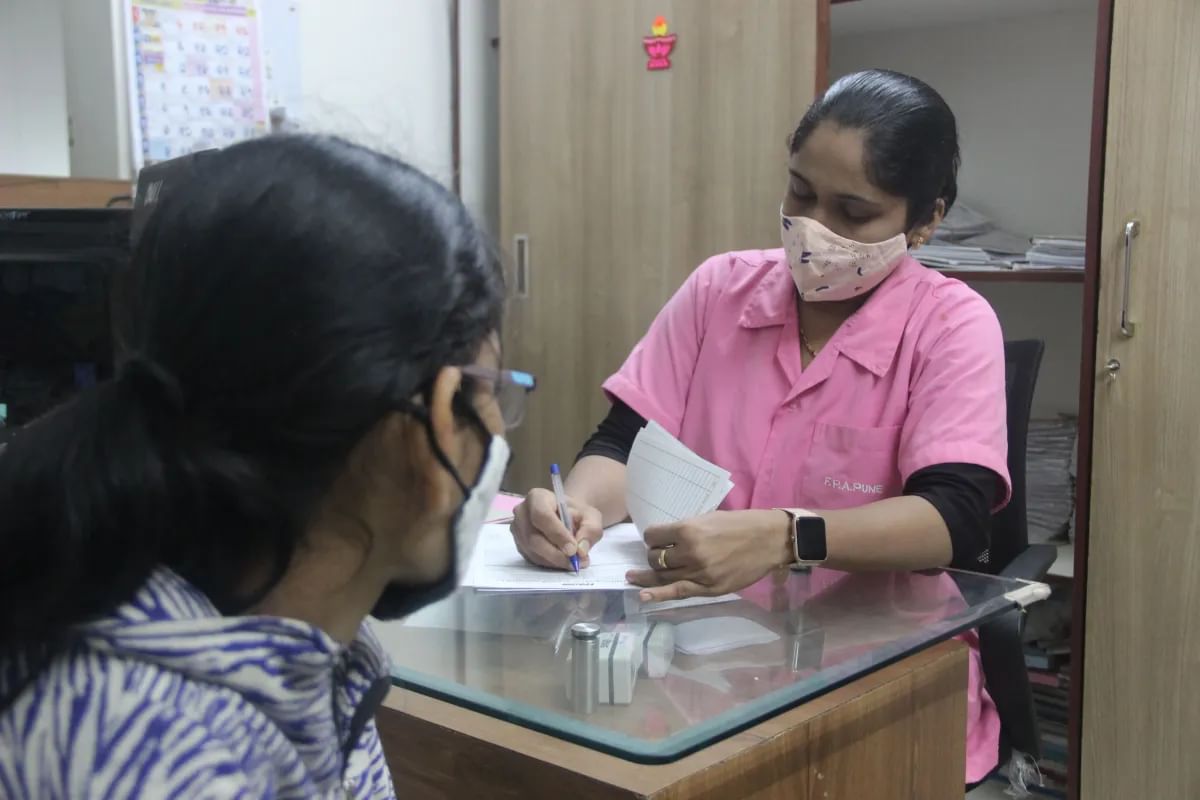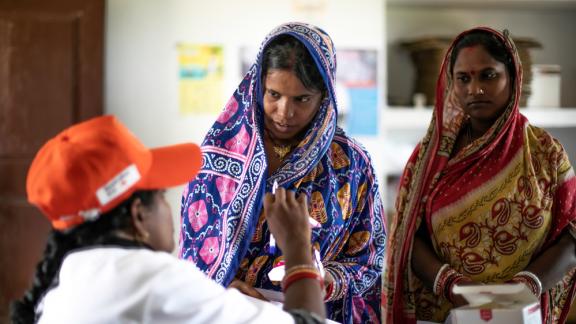Latest press releases
A selection of stories from across the Federation

India
Position Statement on the Indian Supreme Court’s Verdict on Same-Sex Marriage
We have meticulously followed the Indian Supreme Court’s verdict on legally recognizing same-sex marriages. We must express our profound disappointment at the missed opportunity.

| 24 April 2025
The IPPF South Asia Region Advocates for SRHR for All at the World Health Summit Regional Meeting 2025
April 25, 2025, New Delhi, India: The International Planned Parenthood Federation – South Asia Region (IPPF-SAR) is hosting a panel discussion at the 2025 World Health Summit Regional Meeting in New Delhi on April 25, 2025. The session, titled “No Health Equity Without Universal Access to Sexual Reproductive Health Rights and Justice”, will convene regional experts, advocates, and activists to address the stark inequalities in access to sexual and reproductive health care in South Asia. 1 in 4 maternal deaths worldwide occur in South Asia. Unsafe abortions alone contribute to 13% of maternal mortality in the region, often resulting from restrictive colonial-era laws and systemic discrimination. The panel will explore the urgent need for policy reform, human rights-based approaches, and inclusive health care systems that serve diverse marginalized communities including women with disabilities, transgender people, youth, and those affected by humanitarian crises. “We are hoping to highlight the fundamental link between health equity and access to sexual and reproductive health care, emphasizing investment in marginalized communities and transformation of public policy to uphold rights. We are calling on national leadership and civil society partners to come together in achieving Universal Health Coverage (UHC) inclusive of SRHRJ – despite growing opposition threatening essential services.,” said Tomoko Fukuda, Regional Director of IPPF South Asia Region who will also chair the panel. The panel will explore a range of critical issues from abortion access disparities and human rights frameworks to challenges faced by transgender individuals and women with disabilities in accessing SRHR services. They will further deliberate on a critical question - “What should feminists, advocates, community leaders and policy makers do to ensure universal access to SRHRJ?” The session will be chaired by Tomoko Fukuda, Regional Director of IPPF South Asia, and moderated by Dr. Harjyot Khosa, Regional External Relations Director at IPPF South Asia. The panel will feature Dr. Kalpana Apte, Director General of the Family Planning Association of India; Dr. Suchitra Dalvie, Coordinator of the Asia Safe Abortion Partnership; Prabina Bajracharya, Regional Director for Asia at the Centre for Reproductive Rights; Abhina Aher, CEO of the Tweet Foundation; and Smitha Sadasivan, Senior Advisor at the Disability Rights India Foundation. Media representatives are invited to attend and engage with these influential voices as they discuss critical regional priorities and pathways for the future. This panel is part of a broader WHS Regional Meeting commitment to inclusive, just, and sustainable health systems. About the IPPF: IPPF is a global healthcare provider and a leading advocate of sexual and reproductive health and rights (SRHR) for all. Led by a courageous and determined group of women, IPPF was founded in 1952 at the Third International Planned Parenthood Conference. Today, we are a movement of 158 Member Associations and Collaborative Partners with a presence in over 153 countries. Our work is wide-ranging, including comprehensive sex education, provision of contraceptive, safe abortion, and maternal care and responding to humanitarian crises. We pride ourselves on being local through our members and global through our network. At the heart of our mission is the provision of – and advocacy in support of – integrated healthcare to anyone who needs it regardless of race, gender, sex, income, and crucially no matter how remote. For further queries reach out to: Madhurima Mallik ([email protected]) Communications, Voice & Media Advisor IPPF South Asia Region

| 13 March 2025
We Cannot Be Silenced: A Unity Statement from LGBTQI+, Feminist and Human Rights Organizations and Networks in Asia
We make this statement at the first-ever gathering of LGBTQI+ and SOGIESC-diverse communities in Asia since the Trump administration’s return to power. Our very presence here is a declaration of resistance and history in the making. We stand bold, united, and unshaken: we will fight the US administration and their allies in their war against rights, gender justice, diversity, inclusion, equality, and freedom. Within days of Donald Trump’s return to power in January 2025, his administration launched an all-out war on human rights, dignity, and justice. In a calculated attack on the most marginalized communities, the US administration reinstated the Global Gag Rule, cutting off critical funding for reproductive health and rights worldwide. He issued sweeping Executive Orders erasing protections for LGBTQI+ people, banning transgender athletes, criminalizing gender-affirming care, and silencing movements for equality. The U.S. government froze nearly all foreign assistance, forcing life-saving programs for LGBTQI+ people, women, people living with HIV and marginalized groups to shut down overnight. By February 7, organizations began receiving termination notices, severing their ability to serve communities most at risk. This is not just an attack on LGBTQI+ rights, it is an assault on gender justice, reproductive justice, racial justice and our collective freedoms. We are witnessing a coordinated effort between the US administration and the world’s most powerful tech corporations to erase history, silence dissent, and suppress movements for justice. The removal of Black History Month, Women’s History Month, and even the branding of Pride and reproductive rights products is a chilling warning: they are trying to erase us. Social media power players like Google, Facebook, and X are conspiring with authoritarian forces to control the narrative and dismantle decades of hard-fought progress. But we refuse to be erased. We refuse to be silenced. The insistence that gender-affirming care is not real healthcare is a direct attack on evidence-based, life-saving medicine. The bans on gender-affirming care for minors and trans athletes are not just policies — they are part of a broader, dangerous ideology that seeks to strip us of our dignity and autonomy. This is not just about LGBTQI+ people. This is about the right of every person to exist freely, without fear of state sponsored violence and repression.

| 04 February 2025
Breast, Cervical, and Oral Cancer a Growing Concern – FPA India Calls for Awareness
February 4, 2025 – Mumbai, India: On the occasion of World Cancer Day, the Family Planning Association of India (FPA India) is highlighting the alarming incidence of common cancers in the country and calling for urgent action to improve awareness, screening, and early detection. Breast, oral cavity, and cervical cancers remain the most prevalent, accounting for approximately 34% of all cancer cases in India, making them a public health priority. "The numbers are significant, and the need for collective and immediate action is critical," said Dr. Kalpana Apte, CEO, Family Planning Association of India (FPA India). "With breast, cervical, and oral cancers contributing to such a large proportion of cases, we must prioritize prevention, early detection, and equitable access to treatment." According to Globocan 2020, breast cancer is the most common cancer among women in India, constituting 13.5% of cases, with 178,361 new cases and 90,408 deaths reported in 2020. Cervical cancer is the second most common cancer in women, with around 1.24 lakh new cases and 77,348 deaths annually. Oral cancer, accounting for 10.3% of all cancers, saw 135,929 new cases and 75,290 deaths in the same year. Despite the implementation of population-based screening for cervical, breast, and oral cancers under the National Health Mission (NHM), uptake remains critically low. The NFHS-5 survey indicates that only around 1% of women and men in India have undergone screening for these cancers. "One of the biggest barriers to cancer prevention is the lack of awareness and access to screening services," added Dr Nozer Sheriar, Chairperson, Medical Advisory Panel, FPA India. "We need to tackle the fear and stigma associated with cancer screenings and make these services more accessible, especially for underserved communities." For over a decade, FPA India has been at the forefront of cervical and breast cancer awareness, screening, and care as part of its sexual and reproductive health services. Recently, oral cancer screening has been introduced in a phased manner. In 2024 alone, FPA India conducted 50,000 breast cancer screenings, 25,000 cervical cancer screenings, and 15,000 oral cancer screenings. Additionally, FPA India has launched a nationwide cervical cancer awareness and HPV vaccination campaign to protect young girls from this preventable disease. Since September 2023, 1,700 doses of HPV vaccines have been administered to girls aged 9-14 years. To expand outreach, FPA India has invested in digital technology to enhance cervical cancer screening, enabling trained mid-level providers to conduct screenings in low-resource settings. "By integrating digital technology and training mid-level providers, we are bridging critical gaps in screening services and reaching populations that lack access to traditional healthcare infrastructure," explained Dr. Rathnamala Desai, President, Family Planning Association of India (FPA India). FPA India welcomes the Government of India’s commitment to increasing investments in cancer management, as stated in the Union Budget 2025-2026. However, to effectively reduce the cancer burden, it is imperative to optimize resource allocation for preventive measures, including HPV vaccination, increase investments in screening technologies and early detection programs, and enhance capacity-building efforts to train service providers in screening, detection, and treatment. "We commend the government's focus on cancer management, but we also urge stronger investments in prevention and early detection," emphasized Dr. Kalpana Apte, CEO, Family Planning Association of India (FPA India). She further added, "Expanding HPV vaccination, investing in better screening technologies, and training healthcare providers can significantly reduce the burden of these common cancers in India." On this World Cancer Day, FPA India urges policymakers, healthcare providers, and communities to unite in the fight against cancer by prioritizing prevention, early detection, and equitable access to care. "The time to act is now. With collaborative efforts, we can save lives and create a future where cancer is no longer a death sentence but a preventable and treatable condition," concluded Dr. Rathnamala Desai, President, Family Planning Association of India (FPA India). About FPAI: In 1947, when India became independent, fertility was high with couples averaging six children. The population was burgeoning, public health facilities were minimal and life expectancy was low. Having too many children and too soon was becoming detrimental to women's health. A group of concerned women decided to address the issue. It resulted in the establishment of the Family Planning Association of India (FPA India) in 1949. FPA India was instrumental in advocating for family planning to be introduced in the country's first Five Year Plan (1952). Thus, India became the first country in the world to have a family planning programme. Currently, FPA India is a premier civil society organisation delivering essential health services focusing on sexual and reproductive health in over 18 states and union territories of India, in regions where key developmental indicators are poor and gender disparities are high. They include Bihar, Gujarat, Haryana, Jammu and Kashmir, Jharkhand, Karnataka, Kerala, Madhya Pradesh, Maharashtra, Nagaland, Odisha, Punjab, Rajasthan, Tamil Nadu, Telangana, Uttar Pradesh, West Bengal and the Union Territory of Delhi. FPA India works with corporates, businesses and bilateral donors to deliver health services and information, build capacities and advocate for causes that support the community’s development and well-being. FPAI is a member association of The International Planned Parenthood Federation. About IPPF: IPPF is a global healthcare provider and a leading advocate of sexual and reproductive health and rights (SRHR) for all. Led by a courageous and determined group of women, IPPF was founded in 1952 at the Third International Planned Parenthood Conference. Today, we are a movement of 158 Member Associations and Collaborative Partners with a presence in over 153 countries. Our work is wide-ranging, including comprehensive sex education, provision of contraceptive, safe abortion, and maternal care and responding to humanitarian crises. We pride ourselves on being local through our members and global through our network. At the heart of our mission is the provision of – and advocacy in support of – integrated healthcare to anyone who needs it regardless of race, gender, sex, income, and crucially no matter how remote. For further queries reach out to: Madhurima Mallik ([email protected]) Communications, Voice & Media Advisor IPPF South Asia Region
| 21 March 2024
IPPF Director General Calls for Prioritization and Partnerships for Addressing Sexual and Gender-based Violence in Bhutan
Thimpu, March 8: Dr. Alvaro Bermejo, Director-General of the International Planned Parenthood Federation (IPPF), graced the International Women's Day event hosted by Respect, Educate, Nurture, Empower Women (RENEW) on 8 March in Thimpu. The event, observed in the esteemed presence of Her Majesty Gyalyum Sangay Choden Wangchuck, Queen Mother of Bhutan, served as a platform to raise awareness and address the pressing issue of sexual and gender-based violence (SGBV) in Bhutan, and the larger South Asian subcontinent. In South Asia, the prevalence of sexual gender-based violence (SGBV) remains alarmingly high, with lifetime intimate partner violence rates being 35% higher than the global average. This pervasive issue is compounded by societal factors such as the socio-economic structure, power imbalances within households, and institutionalized patriarchy. Countries like Bangladesh and Nepal continue to grapple with gender-based violence, ranking as the top countries where gender-based violence is the first or second leading cause of intentional homicide. Gross human rights violations, including female feticide, honor killings, trafficking, forced sex work, and acid attacks, persist unchecked in South Asia. Additionally, everyday forms of gendered violence within the private sphere often go unnoticed, perpetuating its societal acceptance. Dr. Alvaro Bermejo, in his capacity as Director-General of IPPF, recognizes the urgent need for action to address SGBV in South Asia. “The IPPF's new strategy, "Come Together," underscores the importance of challenging social norms, providing support to marginalized communities, and advocating for policy changes to combat SGBV effectively “, he said. In Bhutan, a study by the National Commission for Women and Children (NCWC) in 2017 on violence against women and girls (VAWG) in the country found that more than 40% of the 298 surveyed women who had experienced physical or sexual violence from a partner – never shared their experience with anyone. RENEW, IPPF's Associate Partner in Bhutan, stands as a champion in the fight against SGBV. Despite significant progress in enacting laws and policies related to sexual and reproductive health and gender equality, Bhutan faces challenges in implementing these measures. RENEW provides comprehensive services to survivors of domestic and gender-based violence, including counseling, legal aid, shelter, advocacy, and awareness campaigns. "During the last 16 years, RENEW has made numerous attempts to understand the nature and causes of GBV and has introduced a stellar community-led intervention to address these issues. However, SGBV remains a critical issue in Bhutan. We urge the government to prioritize Sexual and Reproductive Health and Rights and efforts to combat SGBV down to the local government bodies and officials," stated Dr. Alvaro Bermejo, Director-General of IPPF. "We also seek greater interagency collaboration and coordination to effectively address this issue." As part of the effort towards destigmatising and preventing SGBV in South Asia and to directly work with the most vulnerable communities, IPPF South Asia Region’s #GotToBreakFree Awards aim to shed light on often-invisible survivors from key intersections, including those facing caste-based gender violence, the LGBTI+ community, women in sex work, women with disabilities, and undocumented migrants. By recognizing their contributions, the initiative seeks to build a cadre of community champions and encourage a culture of speaking out against SGBV. During the International Women's Day Celebrations, Dr. Alvaro announced the names of six #GotToBreakFree champions selected from Bhutan, Bangladesh, India, Iran, Nepal and Sri Lanka. “These champions will receive support from IPPF to advance their work in preventing SGBV within their communities and countries. Additionally, they will mentor youth volunteers from the South Asia Regional Youth Network to address harmful narratives and destigmatise SGBV in the region effectively”, said Dr. Bermejo. For further information, please contact Kuenga lhaden at [email protected] and Madhurima Mallik at [email protected] About the International Planned Parenthood Federation The International Planned Parenthood Federation (IPPF) is a global healthcare provider and a leading advocate of sexual and reproductive health and rights (SRHR) for all. We are a movement of 150 Member Associations and Collaborative Partners with a presence in over 146 countries. Building on a proud history of 70 years of achievement, we commit to lead a locally owned, globally connected civil society movement that provides and enables services and champions sexual and reproductive health and rights for all, especially the under-served. We advocate for a world where people are provided with the information they need to make informed decisions about their sexual health and bodies. We stand up and fight for sexual and reproductive rights, and against those who seek to deny people their human right to bodily autonomy and freedom. We deliver care that is rooted in rights, respect, and dignity - no matter what.

| 17 October 2023
Position Statement on the Indian Supreme Court’s Verdict on Same-Sex Marriage
We have meticulously followed the Indian Supreme Court’s verdict on legally recognizing same-sex marriages. We must express our profound disappointment at the missed opportunity to unequivocally affirm the rights and dignity of the LGBTI+ community in India. The court’s recognition of the LGBTI+ community’s rights is a positive development, Chief Justice D.Y. Chandrachud, known for his progressive judgment in the decriminalization of Section 377, which decriminalized homosexuality, asserted that it is erroneous to exclusively associate competent parenting with heterosexual couples, a sentiment we applaud. However, our appreciation is tempered by the court’s reluctance to extend legal recognition to same-sex marriages under the Special Marriage Act. The assertion by Justice Narasimha that the right to marry is statutory, not constitutional, and Justice Bhat’s concurrence that the Act should not be read down to include same-sex marriages, are positions we find deeply unsatisfactory. The verdict, though a mix of progressive and conservative stances, unfortunately, leans towards the latter, leaving the LGBTQIA+ community in a limbo of partial recognition and incomplete rights. The court’s decision to defer the issue to parliament underscores a hesitancy to assert judicial leadership in safeguarding minority rights. We are unwavering in our belief in the inherent dignity, rights, and equality of all individuals, irrespective of their sexual orientation. The verdict falls short of the decisive affirmation of rights that the LGBTI+ community in India deserves and is entitled to. Our advocacy for the comprehensive legal recognition and societal acceptance of same-sex relationships remains as steadfast as ever. We are committed to ensuring that every individual enjoys the freedom to love and be loved without discrimination. We urge the Indian parliament to rise above societal norms and prejudices and to legislate an inclusive, equitable, and just society where the rights and dignities of all citizens are upheld and protected. We are committed to continued and intensified advocacy until the full spectrum of rights is unconditionally extended to the LGBTQIA+ community in India. The journey towards equality, dignity, and justice continues.

| 17 May 2023
Join the South Asia Regional Youth Network
IPPF South Asia Regional Office (SARO) is inviting young people from the region (Afghanistan, Iran, Nepal, Bhutan, India, Bangladesh, Sri Lanka, and Maldives) to become part of its South Asia Regional Youth Network (SARYN). SARYN is a youth-led network run by youth volunteers from IPPF’s Member Associations in South Asia dedicated to promoting sexual and reproductive health, rights, and justice in the region. The network is supported by Member Associations and IPPF South Asia Regional Office. SARYN shares the core values of IPPF and is committed to the same vision and mission as the Federation. The network aims to ensure coordination and collaboration of regional youth and their networks through the development of a Youth Regional Strategic Plan (Youth RSP) drawing from IPPF Strategy 2023-28, which aims to strengthen youth engagement in the region and within eight countries on themes of SRHR, Abortion rights, Diversity, and Inclusion, this will be in line with IPPF’s Sexual Rights Declaration/ IPPF’s charter. IPPF recognises youth and young professionals as champions, knowledge-holders, and innovators thus, firmly advocating that young people hold the key to sustainable development. IPPF’s SARYN is in response to calls by youth to be more engaged in IPPF’s work, particularly in SRHRJ. Individuals with intersectional identities, including young SOGIESC, people living with HIV and/or disabilities, are strongly encouraged to register. ELIGIBILITY To be eligible, one must be: Aged between 10-24 years. Affiliated to a youth-led or youth-focused organisation/network/movement, volunteer at respective Member Association OR affiliated to a university or college and pursuing courses related to the thematic areas. Able to clearly demonstrate a multiplier effect of being part of the network. Willing and able to continue engagement and participation that is in virtual and in-person meetings/seminars at respective MAs (at least 4 events). HOW TO JOIN The joining process is done online by completing an e-application form accessible https://forms.office.com/r/bPGs4grGUg









